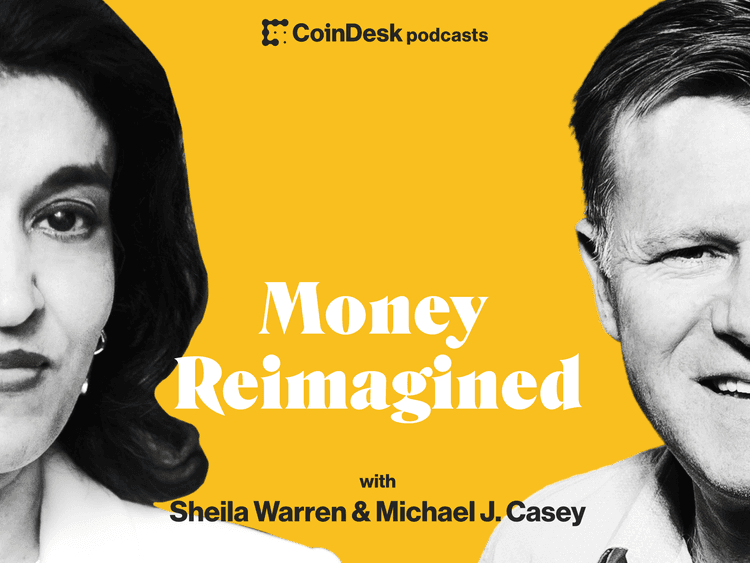Fighting the Trillion-Dollar Cybercrime Industry With ‘Blockchain Thinking’
As society moves increasingly online, so do the kinds of risks that businesses face. With cybercrime growing exponentially and businesses liabilities expanding as they accumulate giant honeypots of sensitive user data, this week’s Money Reimagined explores a new approach toward risk, one fueled by a blockchain mindset.
ABOUT
As society moves increasingly online, so do the kinds of risks that businesses face. With cybercrime growing exponentially and businesses liabilities expanding as they accumulate giant honeypots of sensitive user data, this week’s "Money Reimagined" explores a new approach toward risk, one fueled by a blockchain mindset.
- An analysis of the state of cybercrime with the explosion in ransomware attacks
- The new mindset based on principles of openness and decentralization
- The case for resiliency and cost-based risk tolerance over efficiency and total protection
This episode is sponsored by PumaPay.io.
Hosts Michael Casey and Sheila Warren are joined by Dante Disparte, chief strategy officer and head of global policy at Circle, whose career was previously centered on radical insurance innovation, and digital pioneer Pindar Wong, chairman of VeriFi, an internet infrastructure consulting firm.
A recent report from Cybersecurity Ventures predicted cybercrime costs are on track to total $6 trillion this year. If cybercrime were a country, it would be the third latest economy in the world.
How can a blockchain mindset reduce those costs? The Colonial Pipeline attack was a case study in the danger of centralization. The wider distribution of value, data and attack points that’s inherent to decentralized blockchain technology, as well as its collective witness feature and the power of collective, iterative improvement in open-source development hints at more effective strategies for managing such risks.
It comes down to a different framing for how to strengthen security. The classical notion of “secured versus not secured” is a prohibitive way of thinking that ignores the grey areas of “at-risk.” Is a health care model, with different levels and types of sickness, a more constructive mindset?
With governments poised to introduce central bank digital. currencies (CBDC) around the world – tempting cybercriminals with the biggest honeypots of them all - a new anti-fragile risk-management framework is crucial for society as these changes shape the digital future.
Image credit: Andy /iStock/Getty Images Plus/ modified by Coindesk
HOSTS
Michael J. Casey is Chairman of The Decentralized AI Society, former Chief Content Officer at CoinDesk and co-author of Our Biggest Fight: Reclaiming Liberty, Humanity, and Dignity in the Digital Age. Previously, Casey was the CEO of Streambed Media, a company he cofounded to develop provenance data for digital content. He was also a senior advisor at MIT Media Labs's Digital Currency Initiative and a senior lecturer at MIT Sloan School of Management. Prior to joining MIT, Casey spent 18 years at The Wall Street Journal, where his last position was as a senior columnist covering global economic affairs.
Casey has authored five books, including "The Age of Cryptocurrency: How Bitcoin and Digital Money are Challenging the Global Economic Order" and "The Truth Machine: The Blockchain and the Future of Everything," both co-authored with Paul Vigna.
Upon joining CoinDesk full time, Casey resigned from a variety of paid advisory positions. He maintains unpaid posts as an advisor to not-for-profit organizations, including MIT Media Lab's Digital Currency Initiative and The Deep Trust Alliance. He is a shareholder and non-executive chairman of Streambed Media.
Casey owns bitcoin.

EPISODES
Crypto's Future of Policy, Politics, and the Fight for a Pro-Crypto Government
Messari’s Ryan Selkis from Bitcoin to crypto policy.
Jun 14, 2024
Embracing Nuance and Logic | The Diverse Community of Crypto
Post-Consensus 2024 reflections and examining the crypto industry and the implications of the U.S. Presidential elect...
Jun 5, 2024
‘Tokenization Is the Future of Real Assets.’
Max Boonen, CEO, and Co-Founder PV01, shares the advancements in technology and the war over regulation for tokenizat...
May 22, 2024
Future-Proofing Finance: MICA, Crypto Disclosure, and Global Regulatory Challenges
Bluprynt CEO and Georgetown Law Professor, Christopher J Brummer highlights the crucial need for financial disclosure...
May 18, 2024

The Mining Pod
Feb 10, 2025

CoinDesk Podcast Network
The top stories and best shows in the blockchain world, delivered daily from the team at CoinDesk.
Dec 20, 2023

Markets Daily Crypto Roundup
Tune in as CoinDesk runs down daily action in bitcoin markets and some of the most important recent industry development.
Dec 19, 2023

Unchained
Unchained, your no hype resource for all things crypto by former Forbes senior editor Laura Shin, author of The Cryptopians.
Dec 18, 2023

